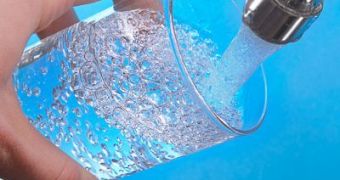A recent study carried out by researchers at the University of Quebec in Montreal, the University of Montreal and the Polytechnic School of Montreal, shows that children that are exposed to high concentrations of manganese in drinking water had results on IQ tests worse than children with lower exposures.
The team of researchers was led by Maryse Bouchard, adjunct professor at the Center for Interdisciplinary Research in Biology, Health, Environment and Society (CINBIOSE) of the Université du Québec à Montréal and a researcher at Sainte-Justine University Hospital, and Donna Mergler, professor emerita in the Department of Biological Sciences and a member of CINBIOSE.
Manganese is a metal naturally occurring in soil, and under certain conditions it is present in groundwater, like in several regions of Quebec and Canada and in other parts of the world.
The study looked at 362 Quebec children between 6 and 13 years old, living in homes supplied with groundwater, from individual or public wells.
Each child had the concentration of manganese in tap water from their home measured, as well as magnesium, copper, zinc, lead, arsenic, iron and calcium.
After estimating the overall amount of manganese from tap water and food (from a questionnaire), scientists tested each child for motor skills, cognition and behavior.
“We found significant deficits in the intelligence quotient (IQ) of children exposed to higher concentration of manganese in drinking water, yet, manganese concentrations were well below current guidelines,” explains lead author Maryse Bouchard.
Children whose tap water was in the upper 20% of manganese concentration, had a 6 points lower average IQ than those whose water had little or no manganese.
Researchers have accounted for family income, maternal education, maternal intelligence and other metals present in the water.
“This is a very marked effect; few environmental contaminants have shown such a strong correlation with intellectual ability,” says co-author Donna Mergler.
As a result of the study, some municipalities have already installed a filtration system which removes manganese from tap water.
A good solution is also using a filtering pitch that reduces the manganese concentration from 60 to 100%.
In Quebec, manganese is not on the list of inorganic substances in drinking water forbidden by the Ministry of Sustainable Development, Environment and Parks Regulation.
Scientists suggest that “because of the common occurrence of this metal in drinking water and the observed effects at low concentrations, that national and international guidelines for safe manganese in water should be revisited.”
The results are published in the journal Environmental Health Perspectives, and the article is entitled “Intellectual Impairment in School-Age Children Exposed to Manganese from Drinking Water”.

 14 DAY TRIAL //
14 DAY TRIAL //